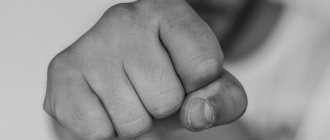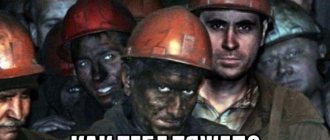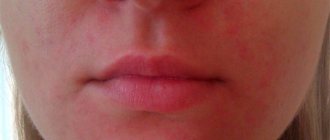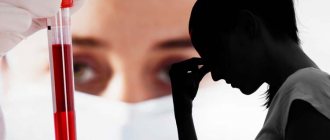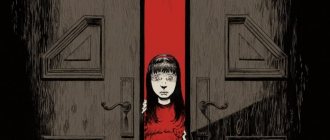Nowadays, people often have numerous phobias, including the fear of contracting an incurable disease, such as cancer. Numerous publications in the media and the Internet contribute to the emergence and maintenance of such thoughts. Before your eyes there are examples from life: TV stars, singers, politicians and other famous personalities. Almost every person has relatives or loved ones who have died from cancer. Often the danger of the consequences of oncophobia is underestimated, which can lead to a tragic ending.
Nosophobia - what is it?
In psychology, nosophobia is the fear of getting sick. According to experts, this fear is quite common. In adults, it develops against the background of frequent stress, neuroses and other disorders, which have a long-term negative impact on the psyche and nervous system.
Such a phobia does not have a specific object of fear. It combines 2 states:
- a person is afraid of getting sick in general;
- a person experiences fear of a particular disease.
Many people mistakenly call nosophobia hypochondria, since both pathologies have similar manifestations. But they also have serious differences. Hypochondria is a mental disorder associated with the suspicion of not one, but many diseases. The fear of getting sick is usually associated with a specific disease.
To put it in simple terms, with hypochondria the patient suspects that he is sick with all diseases at once. Moreover, even those that he read about on the Internet or learned from friends are taken into account. With nosophobia, a person invents a disease and finds its symptoms in himself.
Medications in the fight against cancerophobia
When fear of cancer causes loss of sleep and the loss of the ability to lead a normal life, a psychotherapist is able to recommend special medications that can reduce the intensity of the symptoms of this type of phobia. To eliminate the manifestations of a condition such as carcinophobia, anxiolytics, antidepressants and beta blockers are usually prescribed.
Drugs belonging to the first group, for example, benzodiazepines, are very powerful. Such drugs have a pronounced anti-anxiety, hypnotic and sedative effect. These effects are achieved by inhibiting the activity of the central nervous system. Remedies used to treat fears of cancer include:
- Alprazolam;
- Diazepam;
- Gidazepam.
These drugs have quite a few contraindications and, with prolonged use, become the cause of physical dependence. To combat the manifestations of carcinophobia, such drugs should be used extremely carefully and only in dosages prescribed by a doctor.
When fears manifest themselves physically in a mental disorder such as cancerophobia, treatment can be carried out exclusively with beta blockers. These drugs do not allow a person to stop fearing that cancer will overtake him, but at the same time they help to eliminate hand tremors and increased heart rate, which appear against the background of an increase in the level of adrenaline in the blood. Beta blockers do not affect the existing mental and emotional signs of the disorder, however, their use for the treatment of cancerophobia can eliminate the physical manifestations, which often only fuel subconscious fears. To eliminate the fear of getting cancer, some antidepressants are currently used. Such remedies can only be used on the recommendation of a doctor. Some of their types are contraindicated in the fight against phobias.
Main forms of nosophobia
There are several forms of nosophobia. Their name depends on what disease the patient fears:
- Cardiophobia - heart disease;
- heart attack phobia - heart attack;
- anginophobia - angina attacks;
- cancerophobia/oncophobia - fear of encountering cancer;
- Diabetophobia - disorders associated with diabetes mellitus;
- speedophobia - AIDS;
- syphilophobia - syphilis;
- Dementophobia - dementia.
According to psychologists, the most common are cardiophobia and cancerophobia.
Reasons for the development of nosophobia
There are 6 main causes of nosophobia. There are also a number of factors that provoke its development.
So, the causes of nosophobia:
- Traumatic memories of your own illness or prolonged observation of how a loved one is sick. Negative effects include pain, loss of the ability to move, prolonged treatment or its high cost and inaccessibility, and the need to care for someone. The situation gets worse if the disease ultimately leads to death.
- Negative experiences of diagnosis and treatment. And such cases are not uncommon. There are many stories in the media and on the Internet about how the diagnosis was made incorrectly, the wrong treatment was selected, as a result of which the patient only became worse.
- Fear of death. According to psychologists, nosophobia is one of the variants of thanatophobia. A person believes that any disease can cause his death.
- The desire to be the center of attention. There are children who received care and affection from their parents exclusively in those moments when they were sick. They grow into nosophobic adults who are overly concerned about their health.
- Overprotectiveness. If mom and dad intimidate a child, worry too much about his health, or show excessive care, the child grows up suspicious and weak.
- Developed imagination, suspiciousness. An impressionable person can easily come up with and find symptoms of any disease. When exposed to commercials and bad news, he feels extremely vulnerable. Therefore, he physically feels the manifestations of serious illnesses even when they are not there. This is called psychosomatics.
- Access to medical literature. So, a young man who is studying to become a doctor can look for signs of the disease being studied.
Treatment Options
Psychotherapy is most successful in the fight against cancerophobia
Let's look at what treatment can be for a person who has a fear of developing a malignant tumor.
- Psychotherapy. Most effective in combating any type of phobia. It is often recommended in combination with drug treatment. A specialist will be able to find out what exactly influenced the development of fear. Taking these reasons into account, he will choose the appropriate technique to normalize the patient’s condition. This is how family therapy, classical psychoanalysis, and Jungian depth psychotherapy are often used. Also, a psychotherapist can conduct a differential diagnosis to exclude a neurotic disorder, schizophrenia or psychopathy.
- Drug therapy is prescribed to patients with serious manifestations of cancerophobia:
- benzodiazepines - drugs aimed at normalizing the nervous system, calming (these drugs contain anti-anxiety components);
- antidepressants - reduce the level of manifestation of fears in the patient, the person becomes less irritable;
- taking beta blockers - prescribed to get rid of the physical symptoms of cancerophobia;
- They may also prescribe medications that relieve a person of concomitant symptoms that develop against the background of cancerophobia.
Signs
Nosophobia manifests itself in psychological and somatic symptoms. The first include:
- excessive anxiety;
- panic in situations that can provoke the development of the disease (according to the person);
- depression, apathy, blues;
- difficulties in communicating with other people;
- limiting contacts.
The most common somatic signs of nosophobia are:
- lack of appetite;
- insomnia;
- heart rhythm disturbance;
- cardiopalmus;
- feeling of lack of air;
- lump in the throat;
- increased blood pressure;
- trembling of limbs;
- heavy sweating;
- chills;
- headache;
- nausea;
- stomach upset;
- dizziness;
- frequent urge to urinate.
The more such manifestations, the stronger the belief in the presence of a particular disease. A person considers even banal fatigue a sign of serious pathology.
Nosophobia can be easily identified by its behavior:
- undergoes medical examinations frequently and without reason;
- frequently performs hygiene procedures and is extremely clean;
- avoids sick people;
- spends a lot of time reading medical literature or watching relevant television programs;
- shows increased attention to well-being;
- always preoccupied with clothes, selects them strictly according to the weather;
- diagnoses himself and prescribes treatment.
Characteristic manifestations
Fearing cancer, a person may experience severe pain, which will further confirm his fears
Let's look at what the symptoms of cancerophobia may be:
- a person searches for information about malignant neoplasms, finds out what the signs of a particular oncology may be, compares his alarming manifestations with those indicated for specific cases;
- the presence of emotional instability - often the individual is in a bad mood, touchy, irritated, whiny;
- inability to work normally due to the fact that the head is occupied with thoughts about the likely development of a cancerous tumor - a person has difficulty concentrating and performance decreases;
- the individual often talks about cancer, tells people what, in his opinion, has similar symptoms;
- the individual devotes a lot of time to his health;
- when any pain or other symptoms appear, a person develops panic, followed by hysteria;
- there is a strong fear of possible contact with cancer patients and infection from them;
- Due to constant stress, your health may deteriorate and your appetite may decrease.
Some individuals who have cancerophobia often go to the hospital, constantly undergo numerous tests, check their entire body in order to identify a malignant tumor. Others bypass doctors in order to prevent confirmation of a terrible diagnosis.
All signs of cancerophobia are conventionally divided into three groups.
- Sensual - fear of the appearance of a disease, irritability, fear of detecting characteristic symptoms of a disease.
- Mental - a person reproduces images, thoughts and situations in his head based on the development of oncology, and cannot switch to anything else.
- Physical - the person thinks about the possible development of cancer. The individual's pulse quickens, tremors appear in the body, shortness of breath, weakness, dizziness, and dry mouth.
Diagnostics
It is almost impossible to diagnose nosophobia on your own. Most likely, more than one month will pass before the patient, not finding any illnesses, turns to a psychotherapist for help.
During a conversation with the patient, the doctor assesses his condition and determines the presence of features characteristic of nosophobes:
- literacy, erudition, high level of intelligence;
- emotionality, sensitivity, developed imagination;
- the ability to discuss any disease, the desire to show oneself as a specialist in medical matters;
- deterioration in general well-being during the discussion of some illness;
- use of traditional medicine methods;
- watching medical programs, interest in new products in this field;
- visits to the doctor at the slightest change in health.
It is worth noting that nosophobes rarely turn to a psychotherapist voluntarily. In most cases, they are brought there by relatives or referred by another doctor.
How to get rid of the fear of getting sick
Treatment of any phobia, including nosophobia, must be comprehensive and include medication, psychotherapy and independent fight against the disease.
Drug therapy
Usually the doctor prescribes 2 groups of drugs:
- Tranquilizers. Take them no longer than 2 weeks. Helps cope with mental stress.
- Sedatives. They soothe, eliminate sleep problems, relieve stress in the nervous system and help cope with irritability.
It is worth remembering that only the attending physician can choose the medicine, dosage and duration of treatment. Self-medication is dangerous.
Psychotherapy
Cognitive-behavioral methods have proven themselves to be the best. Their essence is as follows:
- The patient needs to realize the very fact of the problem and accept nosophobia as a real disease.
- A psychotherapist helps to identify the reasons for the development of fear of getting sick, works with them so that they can no longer have a traumatic effect on the psyche.
- The doctor forms positive attitudes in the patient’s mind, and also changes his attitude towards illness and his health.
Causes of cancerophobia
People die from cardiovascular diseases many times more often, but it is the fear of cancer that can deprive people of their minds. Fear of cancer is the body's reaction to panic associated with the threat of death. It can be triggered by close proximity to pathology (illness or death of a close relative).
Heredity is one of the main reasons for the development of a phobia. Not everyone can calmly accept the fact that they are at risk. The rapid “fading away” and premature death of a friend or relative creates an attitude: there is a serious threat of getting cancer.
Reasons for the development of cancerophobia due to lack of internal resources during mental exhaustion:
- generalized anxiety disorder;
- obsessive-compulsive neurosis;
- panic attacks;
- psychopathy:
- hypochondria.
Cancerophobia can be triggered by surgery to remove a cyst or benign tumors. There is a stereotype that any neoplasm necessarily develops into oncology.
Tactless presentation of information to the patient can give impetus to the development of fear of cancer. Prolonged somatic diseases, which provoked sudden weight loss and exhaustion, are the cause of the formation of cancerophobia.
Pathological fear of cancer can cause hormonal imbalance. At risk are women in menopause. This is facilitated by the media, which recommend taking biological supplements that prevent cancer.


